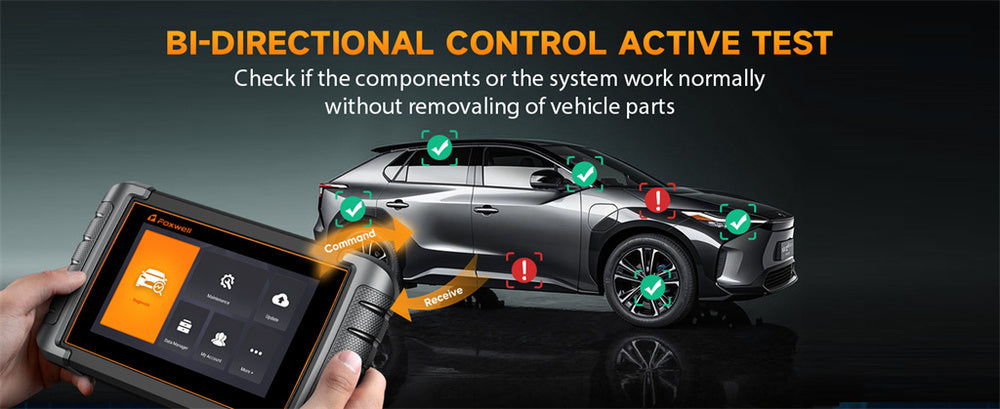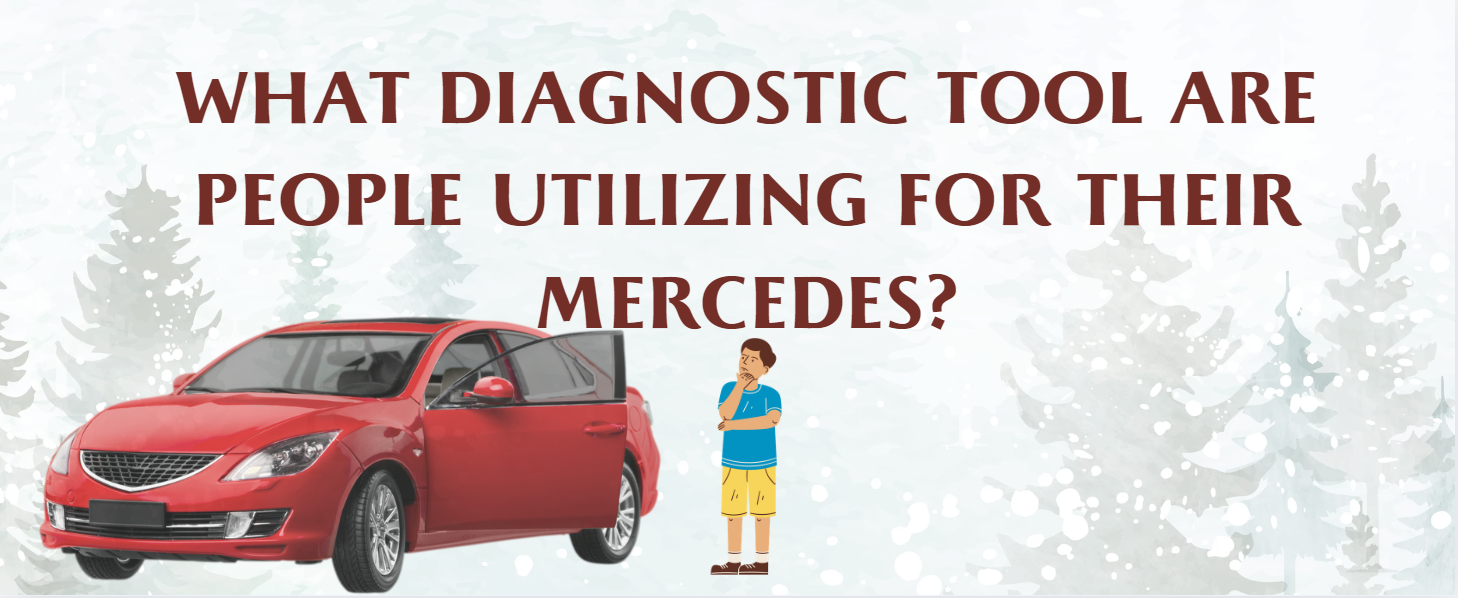Bluetooth OBD2 scanners have quickly become a go-to choice for car owners looking to monitor and troubleshoot their vehicles without visiting a mechanic.
These small, cost-effective devices connect wirelessly with OBD2 ports on cars to provide real-time data analysis on vehicles - but are they worth investing in? Let's take a closer look at their benefits and drawbacks.
What Is a Bluetooth OBD2 Scanner?

Bluetooth OBD2 scanners are diagnostic tools designed to connect with the OBD2 port of your car, giving access to its engine control unit (ECU) and other systems. Once connected, data sent from this scanner via Bluetooth will be delivered directly to a mobile app on your phone or tablet for viewing and analysis.
OBD2 systems became standard on cars in 1996, making OBD2 scanners suitable for many different vehicles.
You can use one to read trouble codes, clear check engine lights, monitor real-time performance metrics such as fuel economy and engine temperature as well as keep an eye on trouble codes that arise over time.
Benefits of Bluetooth OBD2 Scanners
Convenience and Portability
Bluetooth OBD2 scanners' standout feature is their portability. Unlike traditional diagnostic tools that often require wires or larger, bulkier devices, Bluetooth scanners are compact and wireless - simply plugging them into your car's OBD2 port and connecting them with your smartphone makes these scanners convenient to use on the go, at home, or wherever.
Cost-Effective Solutions
For routine vehicle checks can quickly add up. Bluetooth OBD2 scanners offer a cost-effective alternative by allowing you to diagnose and clear simple error codes yourself - often at prices as little as $20 to $50! Basic models make this a budget-friendly option for car maintenance.
Real-Time Data Monitoring
Another advantage is being able to keep an eye on real-time data. A Bluetooth OBD2 scanner allows you to track engine performance, fuel economy, speed, and temperature all from your phone - ideal for diagnosing issues before they become more serious, as well as keeping an eye on your car's health more effectively.
Ease of Use
Scanners are designed to be user-friendly, even for those without extensive mechanical knowledge. Many models include apps with user-friendly interfaces that provide step-by-step instructions for diagnostics and troubleshooting tasks; all you need is your smartphone and a few tips to get going!
Clearing Codes and Resetting
Lights Bluetooth OBD2 scanners offer one of the most valuable benefits: the ability to reset the check engine light. If it comes on due to minor problems such as a loose gas cap, clearing this code will save time by saving you trips from unnecessary repairs at the mechanic.
Disadvantages of Bluetooth OBD2 Scanners
Limited Diagnostic Depth Although Bluetooth OBD2 scanners can provide basic diagnostic tasks, they do not have the same capabilities as professional-grade tools.
Bluetooth scanners generally focus on engine issues while not offering in-depth analysis for more complex issues affecting other vehicle systems like ABS, airbags, or transmissions - for advanced diagnostics it may still be best to contact a mechanic with more specialized tools.
App and Connectivity Issues Bluetooth OBD2 scanners rely heavily on mobile applications for most of their functionality, although most are user-friendly.
Some may contain bugs or connectivity issues that prevent pairing your phone to the scanner, or crash during use; be sure to read reviews before making your decision to ensure reliable operation of the scanner you choose.
Accuracy for Complex Issues If your car has an intricate issue that does not trigger an error code, Bluetooth OBD2 scanners may not be sufficient to diagnose.
They're best used for basic engine diagnostics and code clearing; for more complex issues it may require professional diagnostic services instead.
Compatibility Issues Not all Bluetooth OBD2 scanners are suitable for every vehicle model. Although most vehicles from 1996 onward are OBD2 compliant, older or more obscure cars might not be.
Therefore, always ensure compatibility before purchasing an OBD2 scanner to make sure it works with your vehicle.
How to Select the Appropriate Bluetooth OBD2 Scanner
Selecting an OBD2 scanner requires considering several key factors, including:
Vehicle Compatibility When shopping for an OBD2 scanner, be sure that it works with the make and model of your car. Most modern vehicles should already comply with OBD2 specifications; nevertheless, it's always wise to double-check before making your decision.
App Quality and Features A scanner's success is inextricably linked to its app, so look for those with positive reviews and features such as clear trouble code explanations, real-time data tracking, and understandable graphs. Some apps even provide advanced capabilities like emissions testing, ABS diagnostics, or airbag diagnosis.
Diagnostic Features Some Bluetooth OBD2 scanners offer more basic diagnostic capabilities, while others come equipped with additional features for advanced diagnostics. When making your selection, consider which features matter most to you--whether simply reading codes or monitoring and clearing issues with multiple car systems.
Price Bluetooth OBD2 scanners come at various price points, ranging from budget models to those offering more features and functions. A basic scanner should suffice for most general purposes; however, for advanced functions be prepared to spend a bit extra.
If you're in search of an all-in-one scanner that provides more than engine code readings, the Foxwell NT809BT may be an ideal choice.
Boasting Bluetooth connectivity and a user-friendly app as well as access to advanced features like ABS/SRS airbag diagnostics and transmission diagnostics capabilities - not forgetting real-time data tracking capabilities - it makes an excellent addition for car owners wanting to keep a close watch on their vehicle's health.
Who Can Benefit From Using a Bluetooth OBD2 Scanner?

Bluetooth OBD2 scanners are perfect for:
- DIY Mechanics: If you enjoy doing basic auto repairs and maintenance yourself, a Bluetooth OBD2 scanner can be an invaluable asset.
- Everyday Drivers: Even if you don't consider yourself to be an expert mechanic, having a Bluetooth scanner on hand can help everyday drivers monitor the health of their vehicle and avoid costly trips to mechanics for minor issues.
- Car Enthusiasts: Car enthusiasts looking to keep tabs on the performance and keep repairs at bay will find Bluetooth OBD2 scanners especially beneficial.
Conclusion
Bluetooth OBD2 scanners are an economical and practical solution for car owners who want to manage the maintenance of their vehicles. Their easy use, real-time data monitoring capabilities, and convenience make them ideal for diagnosing basic issues or clearing simple error codes; however, they should not replace professional diagnostic tools for more complex issues.
For those in search of something more advanced, the Foxwell NT809BT provides an impressive combination of Bluetooth connectivity, real-time data streaming, and advanced diagnostics features to get deeper insight into their vehicle's systems.
Bluetooth OBD2 scanners provide tremendous value, whether you are an experienced car enthusiast or someone just wanting to keep their vehicle running smoothly without breaking the bank at a mechanic shop.
FAQs
Can a Bluetooth OBD2 scanner clear codes?
Yes, most Bluetooth OBD2 scanners can clear fault codes, including the check engine light, after diagnosing and addressing the issue.
What is the best Bluetooth OBD2 scanner?
The best scanner depends on your needs, but models like Foxwell NT809BT and BlueDriver are highly regarded for their features, reliability, and compatibility.
Will a Bluetooth OBD2 scanner drain battery?
A Bluetooth OBD2 scanner typically uses minimal power. However, if left plugged in when the car is off, it could slowly drain the battery over time. It’s best to unplug it when not in use.




Leave a comment
This site is protected by hCaptcha and the hCaptcha Privacy Policy and Terms of Service apply.